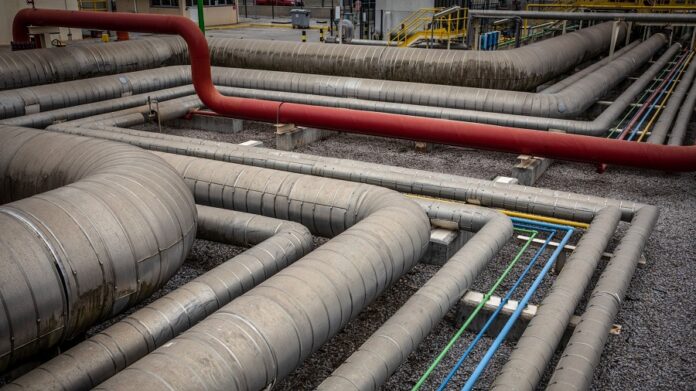The European Union is unveiling a new emergency package to tackle the energy crunch, betting on steps to bolster solidarity among member states. But the bloc will refrain from immediate gas-price caps amid political divisions and concerns over the security of supply, according to Bloomberg.
The European Commission plans Tuesday to propose measures to avoid extreme price spikes in energy derivatives and to use the EU’s joint purchasing power as leverage in negotiations with global gas suppliers, according to a draft document seen by Bloomberg News.
The bloc’s executive arm, also wants to launch a new liquefied natural gas index to better reflect the region’s energy reality after a cut in supplies of pipeline gas from Russia.
At stake is the future of the bloc’s 17.3 trillion-euro economy, which the energy crisis threatens to push into recession as companies and consumers reel from high power and gas bills. The EU is trying to balance demands by more than half of the EU’s 27 member states to limit gas prices with the need to avoid undermining its single market or deepening economic splits among member states.
The EU’s executive arm is also seeking authority from national governments to propose only as a last resort, price limits on transactions on the Dutch Title Transfer Facility, whose main index is the benchmark for all gas traded on the continent. Such a measure could be used while the bloc is developing its new LNG index to avoid price hikes and limit speculation. It would need approval from EU nations in a separate process and would be valid for no more than three months.
To create a more direct mechanism to avert gas-price volatility, the package would require trading venues to establish a new temporary intra-day volatility management mechanism in electricity and gas derivatives by January 31, 2023. In a bid to avoid unintended disruptions on markets for less liquid contracts, the tool should focus on front-month energy derivatives, the document showed.
“The more successful we are regarding energy, the stronger economic and social position we will be in,” Valdis Dombrovskis, the commission’s vice-president, told European lawmakers in Strasbourg on Tuesday.
But “it won’t be possible to shield everyone from the consequences of the war,” he added in reference to Russia’s invasion of Ukraine. Instead, the EU should focus on supporting vulnerable households and the most affected businesses to avoid fueling inflation.
To avoid blackouts and rationing in the heating season, the EU has already agreed to a voluntary 15% gas consumption cut target, with an option of a mandatory trigger. The commission will closely monitor demand reduction measures and stands ready to activate the switch to compulsory cuts or even revise the goals if current measures prove insufficient, according to the draft.


